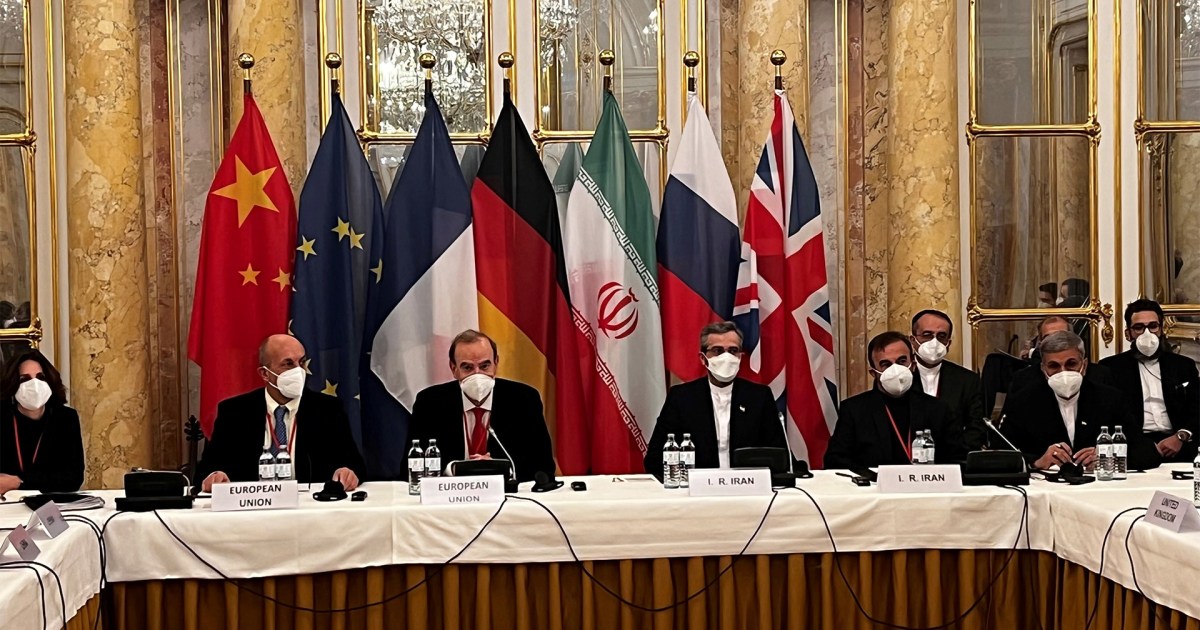European countries rejected Iran's proposals to return to the nuclear agreement and considered them disappointing, at a time when Tehran stressed that these proposals are based on common principles between the two sides.
On Friday, the Europeans expressed their "disappointment and concern" over the content of two recent drafts submitted by Iran regarding the revival of the nuclear agreement signed by Iran and international parties in 2015, from which the United States withdrew in 2018.
Senior European diplomats said Iran was taking a destructive stance in the recently resumed nuclear negotiations.
And they saw that "Tehran is backing away from all the settlements that were reached with difficulty" during the first round of negotiations between last April and June.
They explained that the talks will resume "next week to see if these differences can be overcome or not."
They warned that the chance of a diplomatic solution to the nuclear dispute was shrinking.
Despite these harsh statements, European diplomats said that they are "fully engaged in the search for a diplomatic solution," stressing that "time is running out."
The 2015 Iranian nuclear agreement between Tehran and major powers has collapsed since the unilateral withdrawal of the United States in 2018 and the re-imposition of sanctions, which prompted Tehran to respond by repudiating most of its commitments.
normal thing
The chief Iranian negotiator, Ali Bakiri, said that the solution proposals presented by Tehran during the nuclear talks in Vienna were not accepted by the European parties to the nuclear agreement.
"The European parties are already not satisfied with our proposals, but the important point is that these proposals are based on the principles shared by both sides," he added.
But he considered that the European position is normal because the Iranian proposals came "in accordance with our interests and policies, and not according to things that are in line with their views."
The Iranian chief negotiator indicated that the European side could also present its own proposals, provided that they are based on common principles.
The talks were launched recently in Vienna under the chairmanship of Enrique Mora, Deputy Secretary-General and Political Director of the External Relations Department of the European Union.
It was attended by high-level representatives from Russia, China, Germany, France, England and Iran, and was suspended until next week due to the two parties' inability to reach an agreement.
The United States, which Iran refuses to meet directly, participated in the negotiations.
Negotiations focus on placing restrictions on Iran's nuclear program again, and lifting US sanctions imposed on Iran;
The goal is to revive the 2015 nuclear deal aimed at preventing Iran from developing nuclear weapons.
Washington, under former President Donald Trump, withdrew from the nuclear deal in 2018, and imposed severe economic sanctions.
In return, Tehran exceeded the agreed limits on its nuclear program and began producing uranium close to the level used to produce a nuclear weapon.

